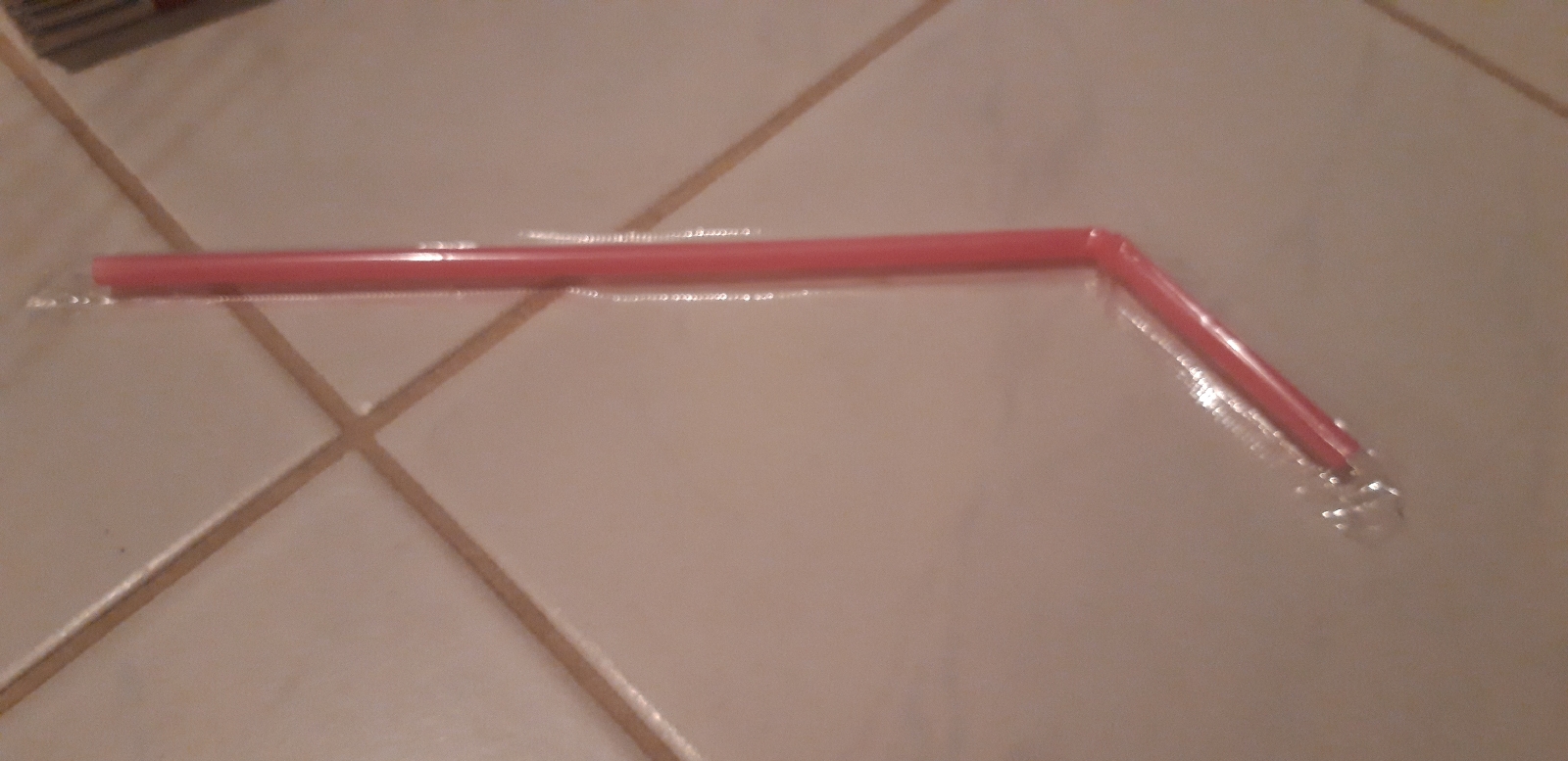Regular readers will already know that my enjoyment of our outings to the beach gets interrupted somewhat by F's obsession with collecting rubbish. It is not collecting in the sense of old coins, classic cars, or Barbie Dolls - she doesn't actually keep the stuff. There is no display of the weird and wonderful things found on the beach, and no time spent on polishing, maintaining or curating this collection. It goes straight in the bin at the top of the stairs when we are on our way back home.
A couple of days ago the haul wasn't big but included two items:
Plastic straw inside a cellophane wrapper. Two pieces of plastic rubbish. On this occasion collected as one, but F commented that separately they make up a huge percentage of what she fishes out of the sea with her net. Those little cellophane wrappers are not confined to straws and being clear don't look like a huge eyesore on the sea, until you look at it from underneath the surface.
She tells me (I am never (NEVER) going to verify this) that if you wear goggles as she does and look forward when you are swimming, you can see the patches of rubbish where these little cellophane wrappers hang from the surface of the water like some sort of upside down forest of garbage. It doesn't even have the beauty of jelly fish or similar colourless sea creatures that might hang in the water. (Jellyfish I sort of know about - I saw one on Madsnapper)
Juice box with bamboo straw. Straws used to be paper. Someone thought plastic was better. Then plastic wrapped in plastic was cleaner, and now we've done the full circle back to paper, but it's made out of bamboo fibre - which is trendy - and therefore GREENER - no?. I wonder if it came packaged in a cellophane wrapper stuck to the outside of the multi-layered, difficult to recycle box that contained the juice.
So in the end - which bit of discarded fast drink rubbish represents a greater waste of the planet's resources?


Hari Om
ReplyDeleteGggrrrrr that tetrapacking makes me grit my teeth because it is not recycled in The Hutch's bin (neither is glass, can you believe?!) and we have to go to the main dump. So I avoid such packing wherever possible. Oh... it's such a battle we wage... hugs and whiskeries, YAM-aunty xxx
YAM-aunty - I overheard F and her friend Pili discussing food and packaging and they both admitted that they had stopped buying/eating some foods simply because of the way they are packaged, or the fact that they are packaged at all when they probably don't need to be. We have heard that most of that plastic packaging we hate so much on supermarket fresh food actually prevents/saves millions of tonnes of food waste every year, and yes that is important, but at what cost? Maybe what is needed is a re-examination of fresh food supply, marketing, and distribution and someone bold, clever, or brave enough to challenge the supermarkets' stranglehold on the distribution and market in fresh food - in UK in particular.
ReplyDeleteHari OM
DeleteTo some degree that happened during COVID... and now there is concern from BREXIT and food supplies are affected... I have a sense revolution is building, but oh so very treaclish... Yxx
I read the link. The supply (as in quantity) of available food didn't seem to be in question, just the distribution network. We've got it, we just can't get it too you. Let's hope it starts a serious review of food security ; locally, regionally...
DeleteALL of the above is killing our planet.. or has already killed it. those straws and tiny plastics are killing our fish and birds and even our beautiful dolphins, a dolphin died with a balloon over its blow hole. Balloons should be outlawed as should all these other things. we need to go back in time to all things able to reuse or recycle.
ReplyDeleteI have studied my home and realize we would destroy the planet in months if everything i have in some form of plastic was made of wood or metal. Some plastics are a genuine advance. However its the stuff that is around the things we buy that we apply no value to and simply discard that is creating a huge problem. Bottled water for instance, the water itself is probably only a tiny percentage of the price you pay - the rest being bottle, marketing, transportation, mark-ups from wholesale to retail etc - so people are throwing most of their money away with the bottle.
Delete